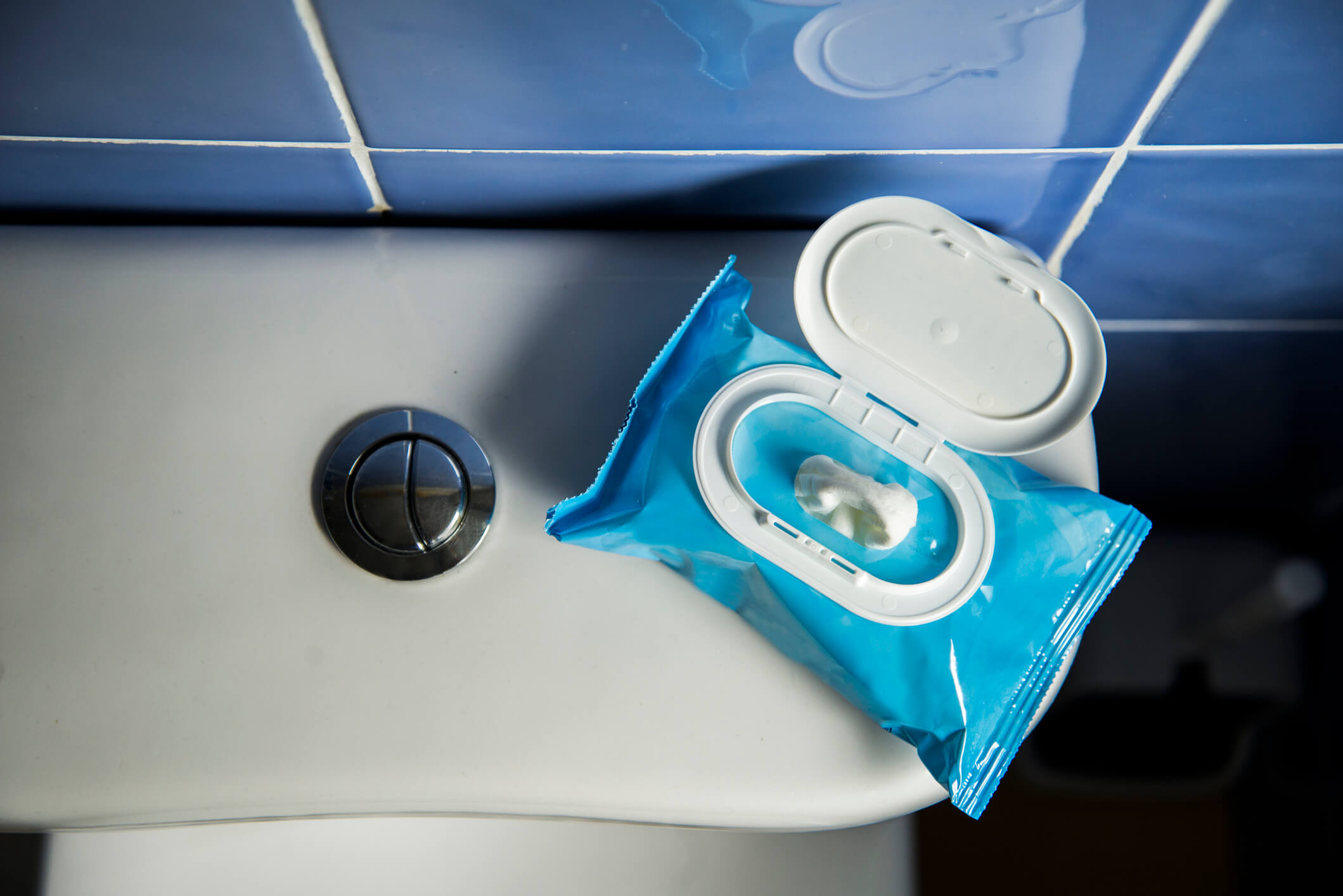While it may seem like your toilet can easily flush away trash like paper towels and wet wipes, plumbers and city sewer workers will tell you a different story. Flushing items other than your personal business and toilet paper can have many negative repercussions that may ultimately affect your entire community.
If you still flush trash other than toilet paper from time to time, below are some reasons to reconsider.
Toilet Paper Is Made to Break Down in Water
A lot of disposable items in your around your home appear similar to toilet paper in look and texture. Is toilet paper really that different from napkins, paper towels, facial tissues, personal wipes, or antibacterial cleaning wipes? The main difference comes down to how manufacturers construct them.
Manufacturers know that toilet paper needs to pass through your home’s plumbing pipes, which are not very wide. From there, the paper must be able to journey through the municipal sewer system to the local wastewater treatment plant. That’s why they design toilet paper to fall apart quickly when soaked.
Now think about objects like paper towels and napkins. You don’t want these items to wilt into pieces the moment they touch moisture. In fact, wipes “sit” in moist containers, ready for use. If that moisture caused them to break apart, they’d be useless. You can see the difference between a wipe and toilet paper in this short video from the City of Durham’s Water Management Department.
Flushed Garbage Causes Plumbing Clogs
Because woven paper materials like paper towels tend to hold their shape in water, they can get stuck and form blockages in your home’s plumbing. The first place they can cause a clog is in your toilet. However, the force of the flush can push the garbage into your home’s drain-waste-vent system. The drain-waste-vent system is a series of pipes that take waste from your toilet and used water from other drains down to your home’s sewer line.
As mentioned above, your home’s drain and waste pipes are not that wide, so it’s not difficult for a clog to form. Additionally, garbage can collect to create a blockage in your home’s sewer line, preventing wastewater from leaving your home and traveling into the municipal sewer system.
Clogs are bad news for two significant reasons:
If the clog is severe enough, the pressure it creates can cause a leak (or multiple leaks) in your plumbing.
A clog can also cause wastewater to travel backward up your home’s pipes into your drains, which means you could end up with sewage filling up your sinks and showers.
Plumbers have cleared out just about every type of trash imaginable from plumbing pipes, including diapers, cotton balls, feminine hygiene products, contraceptive items, and kitty litter. Save yourself a plumbing repair and stick to flushing toilet paper and what nature provides.
Flushed Garbage Causes Blockages in Sewers and Wastewater Treatment Plants
Because of 2020’s infamous toilet paper shortage, many people have resorted to flushing toilet paper substitutes, including paper towels and so-called “flushable” wipes. This has caused a major headache for municipal sewer and wastewater treatment plant workers, as these items are notorious for causing clogs in city sewers and wastewater treatment plant pumps. This problem is expensive to fix and ultimately costs taxpayers money.
Despite what the packaging may tell consumers, a recent study for the Municipal Enforcement Sewer Use Group of Canada showed that none of the 23 “flushable” wipe samples “fell apart or dispersed enough to safely pass through the sewer system without a risk of clogging or causing damage to infrastructure.” Similarly, the Fit RV conducted a “toilet paper vs. wipes” experiment viewable on Youtube. In this video, you can see the difference between how toilet paper breaks down in water compared to several major U.S. brands of flushable and “septic-safe” wipes.
Unfortunately, clogs in city sewers and pumps are not where the problem ends. When municipal sewer systems get major blockages, sewage backflow can occur in homes, businesses, the streets, and even local waterways, polluting the surrounding environment. This is why we all must continue to flush responsibly. After all, the impact can be much larger than we ever imagined.
From commercial grease traps to residential drains and septic systems, our Houston plumbing experts at Pioneer Plumbing and Septic have the training and experience to provide you with reliable solutions. Contact us online or give us a call today: (281) 815-2772.

